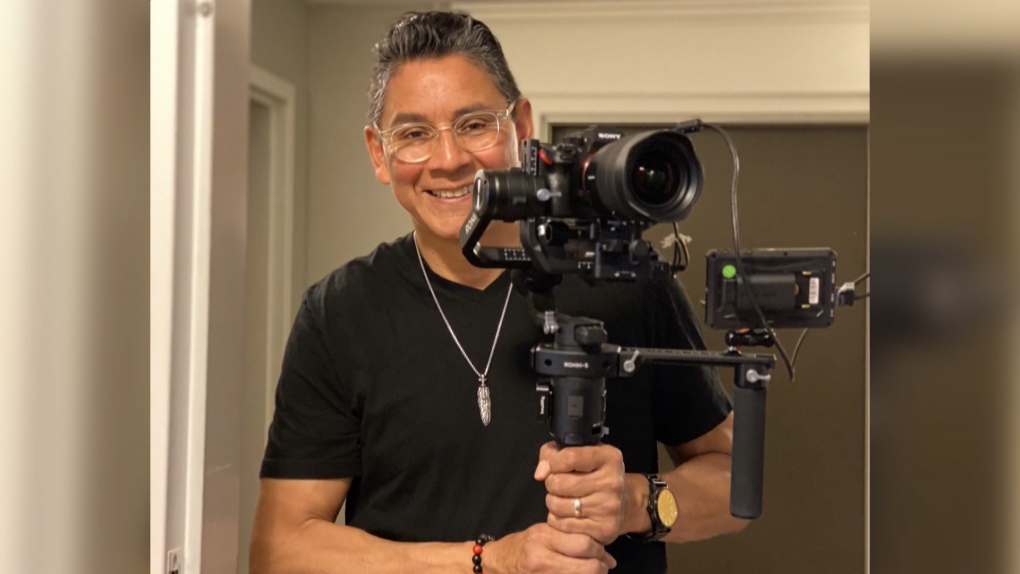ADHD diagnoses have increased during COVID-19 pandemic: psychologist
With the COVID-19 pandemic approaching the two-year mark, a psychologist says more people are being diagnosed with Attention Deficit Hyperactivity Disorder (ADHD).
The Centre for ADHD Awareness Canada (CADDAC) says this chronic neurodevelopmental disorder affects approximately five to nine per cent of children and three to five per cent of adults.
Registered psychologist Farrell Greenspan has seen many Albertans ask for help as mental health impacts of the pandemic become more evident.
“There has been a big increase in people reaching out or looking for assessment of ADHD, looking for a diagnosis for it or just other mental health issues in general,” he said.
"For most people, when they really stop and realize there may be something going on here is when there's been a backlog and that stress has been building over time because stuff hasn't been managed well and they haven't been organized in managing their day-to-day activities."
The Attention Deficit Disorder Association, an U.S organization for adults with ADHD, had membership numbers nearly double between 2019 and 2021, according to an August 2021 New York Times article.
For many adults, the last two years have included schedule changes and a loss of structure. For Albertan Nikki Houde, this meant she was forced to work from home. She believes that sudden shift highlighted issues in her day-to-day life.
“I started to get really bad anxiety. I would wake up in the middle of the night and have tasks, things I had to do just running through my mind and I couldn’t get back to sleep," Houde said.
A year-and-a-half went by before she reached out to a doctor. That’s when she found out she had ADHD.
 Nikki Houde was diagnosed with ADHD during the pandemic.
Nikki Houde was diagnosed with ADHD during the pandemic.
“I was so relieved. It was like I am not actually...there isn’t anything wrong with me. It’s something in my brain, it’s just the way my brain works. Now I call it my superpower,” she said.
Once diagnosed, Houde was able to get treatment. It was a move she called “life-changing.”
However, not everyone’s journey with the disorder is as straight forward. Greenspan says anyone struggling with impulsivity, inattention or hyperactivity should reach out to an expert for help before issues spiral, like Trevor Boller's did.
Boller was diagnosed with ADHD 12 years ago but fears about medication left him without treatment. He managed to get by until the pandemic hit. Without stability, he says his mental health worsened quickly.
“I was at the computer and I just couldn’t concentrate. I couldn't sit that long, I felt like a caged animal,” he said.
Then his thoughts took a much darker turn.
“You start thinking, how can I help my vehicle crash? Or how about if I just jump in front of a truck?”
After these suicidal thoughts, Boller reached out for help. With the guidance of his doctor and new medication, he found peace with his diagnosis. He also thinks learning more about ADHD supported his healing journey.
“It was like a light bulb went off in me again. It was like I was in a room that was so dark all those times and someone finally came and turned on a light and you start exploring,” he explained.
 Trevor Boller says his mental health worsened after the pandemic began.
Trevor Boller says his mental health worsened after the pandemic began.
Boller believes it saved his life.
“It’s OK to talk about it. I talk about it with my friends. I seek help about it, and I don’t have to be ashamed of it.”
With files from CTV News Edmonton's Chelan Skulski
CTVNews.ca Top Stories

Richard Perry, record producer behind 'You're So Vain' and other hits, dies at 82
Richard Perry, a hitmaking record producer with a flair for both standards and contemporary sounds whose many successes included Carly Simon’s 'You’re So Vain,' Rod Stewart’s 'The Great American Songbook' series and a Ringo Starr album featuring all four Beatles, died Tuesday. He was 82.
Hong Kong police issue arrest warrants and bounties for six activists including two Canadians
Hong Kong police on Tuesday announced a fresh round of arrest warrants for six activists based overseas, with bounties set at $1 million Hong Kong dollars for information leading to their arrests.
Read Trudeau's Christmas message
Prime Minister Justin Trudeau issued his Christmas message on Tuesday. Here is his message in full.
Stunning photos show lava erupting from Hawaii's Kilauea volcano
One of the world's most active volcanoes spewed lava into the air for a second straight day on Tuesday.
Indigenous family faced discrimination in North Bay, Ont., when they were kicked off transit bus
Ontario's Human Rights Tribunal has awarded members of an Indigenous family in North Bay $15,000 each after it ruled they were victims of discrimination.
What is flagpoling? A new ban on the practice is starting to take effect
Immigration measures announced as part of Canada's border response to president-elect Donald Trump's 25 per cent tariff threat are starting to be implemented, beginning with a ban on what's known as 'flagpoling.'
Dismiss Trump taunts, expert says after 'churlish' social media posts about Canada
U.S. president-elect Donald Trump and those in his corner continue to send out strong messages about Canada.
Heavy travel day starts with brief grounding of all American Airlines flights
American Airlines briefly grounded flights nationwide Tuesday because of a technical problem just as the Christmas travel season kicked into overdrive and winter weather threatened more potential problems for those planning to fly or drive.
King Charles III is set to focus on healthcare workers in his traditional Christmas message
King Charles III is expected to use his annual Christmas message to highlight health workers, at the end of a year in which both he and the Princess of Wales were diagnosed with cancer.

































